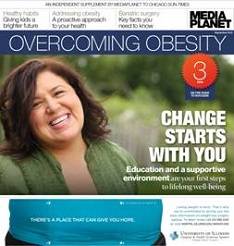Emotional Eating Solutions: Asking for help â why it might not be helping
By: Melissa McCreery, PhDOne of the most common reasons smart, capable women stay trapped in cycles of struggling with overload, overwhelm, and overeating, is a lack of consistently used, high quality support in their lives.
âAsking for helpâ sounds like a simple strategy, but for many high-achievers, it just ainât so.
Here are the most common reasons you may not be getting the help you need.
Shame. Some high-achievers equate strength with self-reliance. They are so strongly independent that they havenât permittedâor perfectedâthe skill of asking for helpâat least in certain areas of their lives. The belief that health and well-being ought to be areas they can take charge of on their own holds them back and keeps them struggling, in part because they arenât leveraging the support that they count on in the rest of their lives. If you are carrying a belief that you âshouldnât needâ to ask for help or if you arenât used to doing so, shame may be holding you back from getting what you need to move forward.
Unused muscles. If you arenât someone who has asked for help in the past (maybe youâve even congratulated yourself for this as if it were a strength), then you probably find yourself in situations where help would be useful but it doesnât even occur to you to ask. If this is the case itâs time to start waking up your âdelegatingâ and âasking for helpâ muscles. Begin by asking yourself about the situations or struggles that others might be able to help you with. Notice the places where you feel stuck and consider who might have the expertise or wisdom to guide you so that you donât have to keep struggling to reinvent the wheel.
Being a one-strike-and-youâre-out-support seeker. If you find it challenging to ask for help, you might not be pushing hard enough to get it. If you find yourself thinking, âI asked for help and they never followed throughâ or, âit just wasnâtâ very helpfulâI guess I just need to do it myself,â you arenât alone. However, these experiences are not reasons to stop askingâthey are probably indications that you need to ask more, follow up, and make sure that you are crystal clear about what you are asking for. âI could use some helpâ and âWould you please stop and pick up dinner on your way homeâ are two different requests that will yield very different results.
Not knowing what to ask for. This is a big one, and itâs another reason that many women shy away from the help that could really propel them forward. Donât be afraid to ask others for ideas: âHow could you help out with this?â Most of all, donât short change yourself because you arenât quite sure what you need. Reaching out to an expert, describing the situation, and finding out what resources are available might make all the difference.



















